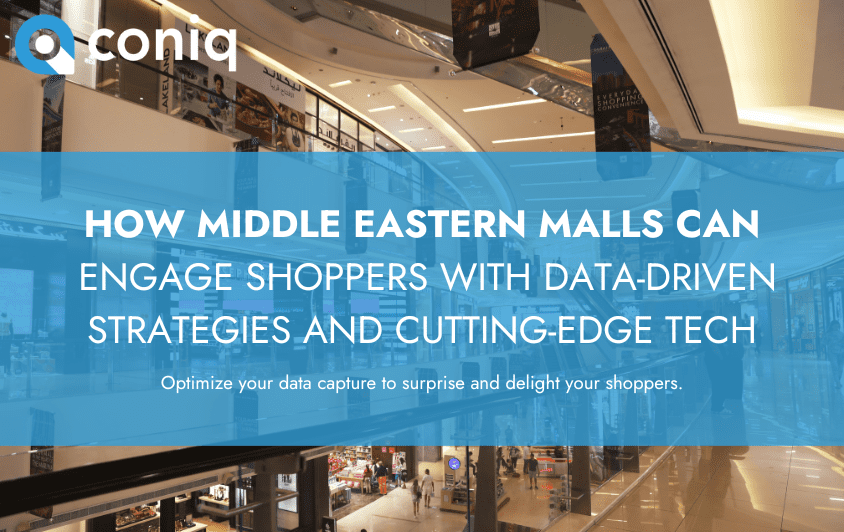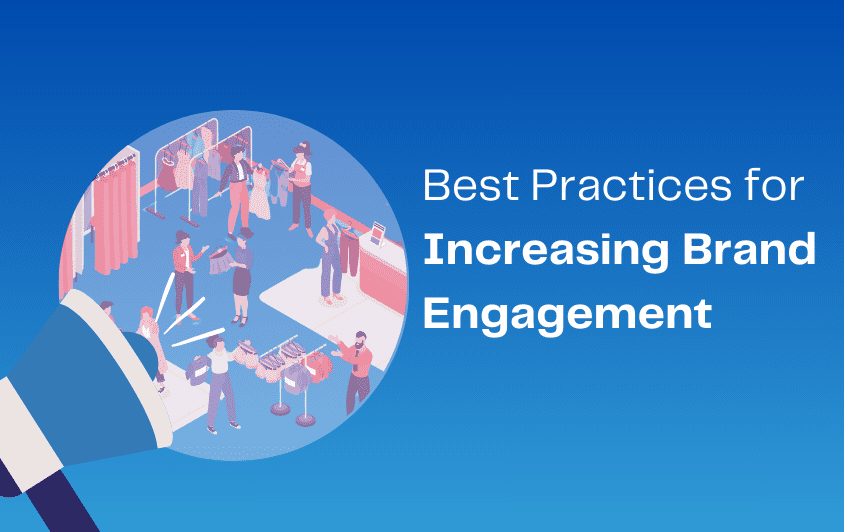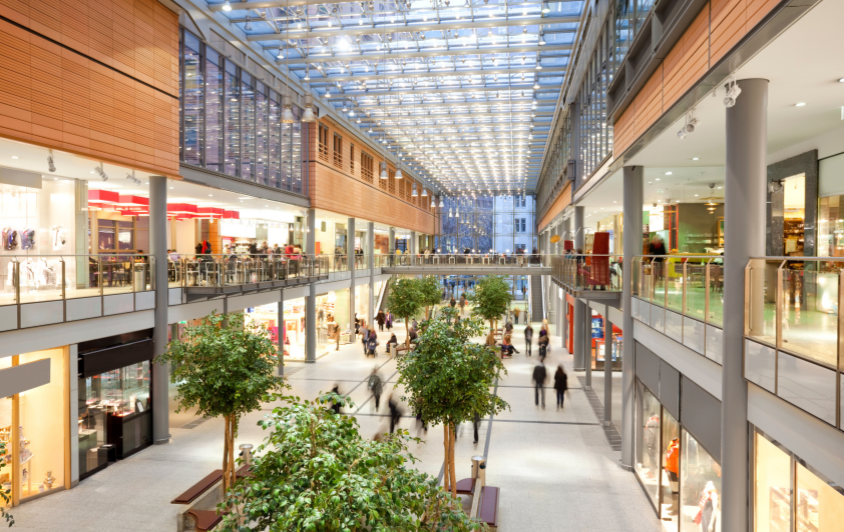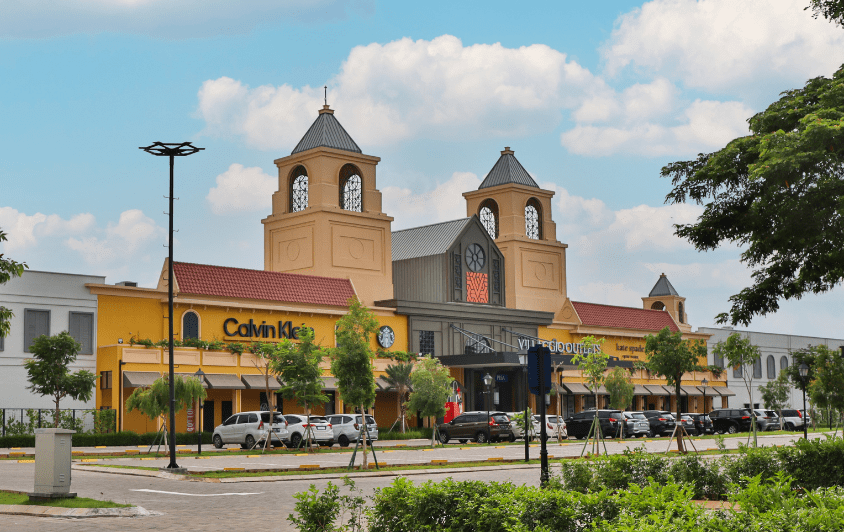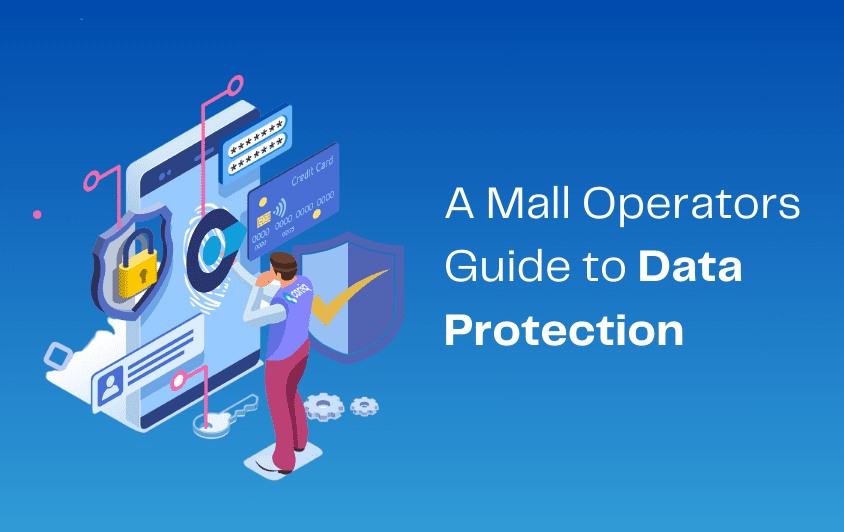For years, major retail names in the Middle East have excelled at crafting unparalleled luxury experiences, setting a standard that’s hard for other regions to match. The rising phenomenon of experiential retail within shopping malls underscores the region’s dominance, with Middle Eastern retailers leading the charge in surprising and delighting their clientele. This strategy has demonstrated its effectiveness in boosting customer engagement, foot traffic, prolonging visits, and encouraging larger purchases.
As the region shifts towards creating dynamic, multifaceted destinations that center around community, shopping malls must learn how to leverage these deep customer relationships to form a loyal following of their own. A great example of a large mall already tapping into this is Yas Mall, UAE. Seamlessly combining shopping, entertainment, and leisure, with a range of cultural experiences suitable for the whole family, this mall has seen huge growth in footfall.
Understanding your shoppers’ needs is crucial for driving customer satisfaction and engagement. To achieve this, gathering and analyzing customer data is essential. However, in 2024 and beyond, easy access to third-party data is diminishing due to heightened data security measures. For instance, Google is gradually phasing out third-party cookies targeting Chrome users worldwide. This shift underscores the importance of prioritizing first-party data collection methods.
Fortunately, acquiring this data is not as complex as it may seem, especially with the right technological tools at your disposal.
Technology is at the forefront of the industry
PWC’s 27th Annual CEO Survey (Middle East Findings), identifies one (of four) key focus areas for 2024 and beyond as ‘technology investment’, stating that the Middle East must “pursue a growth strategy and prioritize a comprehensive technology redesigning agenda while scaling technology usage, building organizational agility… for the future.”
Similar feelings were shared in KPMG’s 2023 UAE CEO Outlook as 56% of CEOs agreed that AI is a top investment priority, likely driven by examples such as the Dubai and Abu Dhabi malls, who are already using AI algorithms to provide personalized shopping recommendations. Evidence shows that individually tailoring the retail experience increases customer satisfaction and loyalty.
Harness retail technologies for optimized data capture
As mentioned, there is a growing need for shopping destinations to acquire first-party data from customers to sustain growth and foster loyalty. Fortunately, numerous strategies and technologies are available to support this. B2B SaaS companies like Coniq are leading the charge in offering customer engagement solutions that prioritize compliant data collection.
Investing in a robust CRM capable of not only gathering data from various touchpoints but also consolidating it into comprehensive reports and dashboards is essential. This allows you to gain insights into customer behavior and tailor shopping experiences accordingly. Additionally, prioritizing a solid foundational tech stack that is both adaptable and scalable is crucial to meeting the needs of your customers for years to come.
Several retail technologies exist that can offer detailed insights into shopper behavior, such as where they shop, how long they stay, visit frequency, spending habits, and purchase preferences. Examples of these technologies include:
- Scanners – Physical scanners are installed at the POS to facilitate a smooth customer journey while also collecting valuable data.
- Receipt scanning – Incentivize customer interaction by allowing customers to earn loyalty points for scanning their receipt post-purchase. They earn extra points towards a reward, while you’ll get access to their purchase data.
- Geo-location tagging – Geo-fencing through a mobile app allows you to see how your customers engage with your location, where they shop, and how long they spend doing so.
- Mobile apps/ Digital Wallets – Create an omnichannel way for customers to streamline their in-store experience. Digital wallets and apps allow shoppers to link their payment card to their loyalty account, see when their favorite store is open, view maps, unlock rewards, and even get notified when on site. Utilize push notifications for added real-time engagement.
- Gamification – Studies show that gamification features boost engagement by 47%. Implementing game-like elements, mechanics, and design into the shopping experience can help engage customers. For example, using digital stamps, competitions, and progression markers.
- Digital marketing – A properly segmented email distribution list and solid social media marketing strategy provide opportunities to communicate new and exclusive offers and events with shoppers. Take a look at other ways you can enhance your shopping mall marketing strategy here.
- Loyalty program(s) – You can combine all of the above to create a direct touchpoint with your shoppers, where they are rewarded for engaging with you! This method gives you the data you need while improving your customer’s experience with you.
Some mall operators may contemplate building these technologies themselves as part of their bespoke digital infrastructure. However, obtaining proven technologies from established providers offers numerous advantages including faster time-to-market, reduced financial and resource investments, and mitigation of risks associated with inexperience and evolving market dynamics. Partnering with specialized providers who have demonstrated success in hundreds of tried and tested environments offers you a secure foundation that meets your security needs, while also being flexible with APIs for creative development so that you can concentrate on future innovations. The decision on whether to buy an off-the-shelf solution or build your own will need to be weighed up against the time and cost of implementation, the forecasted ROI, and the need to scale and future-proof functionality.
Surprise and delight customers to establish loyalty
Resolving typical customer pain points, delivering first-class customer service, and delighting customers with unforgettable experiences and premium rewards are the trifecta for building loyalty.
Here are some examples that you could implement in your shopping mall:
Enhance the in-store journey
- Support customers in finding and ordering products with personal shopping experiences or in-store hostesses
- Make online order collections simpler by having a central collection point in the mall
- Implement digital payment methods –digital wallets & card-linking
- Provide a hands-free shopping service
- Dedicated shopping assistants can aid customers with queries on the mall floor or at a central information desk
- Implement an easy-to-use parking system in your car parks – for example, colored lights to indicate available spaces, ticketless ANPR systems, and touch screen maps to re-locate parked cars post-visit
- Offer valet parking, car wash, and windscreen repair services
Boost your community engagement, social and environmental responsibility
- Prioritize sustainable practices and retail brands- 48% of MENA’s millennials only buy from socially responsible brands
- Provide opportunities for your customers to take part in sustainable practices – 53% of customers choose to invest in durable products that can be reused or recycled
- Demonstrate your sustainability efforts – 88% will be more loyal to a company that supports social or environmental issues
Mastering the omnichannel experience
- A connected customer journey across physical and digital touchpoints provides the opportunity for highly personalized interactions and a seamless experience
- Utilize demographic data in addition to your first-party preferences to inform your engagement strategy – 55% of the population in the MENA region is under 30
- Grow your all-under-one-roof approach by identifying ways to support or promote community initiatives– every location within your mall is an opportunity to surprise and delight your customers
- Invest in memorable experiences such as unique themed attractions and exclusive events
Case Study: AW Rostamani
AW Rostamani’s ‘VIP Rewards’ is a prime example of how to run a program that combines luxury retail with personalized experiences that encourage continued customer engagement. Incredible results were seen in the months following launch with the enrolment of over 48,000 shoppers who contributed 28% of AWR’s total revenue.
‘VIP Rewards’ is a tiered program that harnesses Coniq’s platform to gather data insights at every interaction point in the customer journey. Members receive customized rewards based on their spending habits, transaction history, and frequency of visits. Initially launching with Silver, Gold, and Platinum tiered levels, the performance of the program was so effective that in November 2023 AWR introduced a Diamond Tier for customers at their luxury jewelry brand, Vhernier.
They did this following the analysis of demographic and psychographic insights, provided by the CRM, which showed that VIP Rewards members typically spend up to 40% more than the average transaction value (ATV) of a non-loyalty customer. The Diamond tier offers Vhernier shoppers an extra layer of luxury as those in the category must hit a spending threshold to access this tier.
AWR’s VIP program offers a range of innovative rewards and incentives as part of their program:
- Earn points to access VIP events.
- Special requests – in-house DJs in AWR stores will play song requests while members are browsing products.
- Double-points opportunities
- Early access to new store openings and collection launches
- Competitions to win premium merchandise and experiences
- Private styling sessions
- 1:1 experiences – Diamond members will have the unique opportunity to fly to Milan, where they can witness the meticulous craftsmanship of their bespoke jewelry pieces firsthand, at the Vhernier factory.
Watch the VIP Rewards case study AW Rostamani Lifestyle’s Managing Director >
Incorporating experiential retail within your mall is no longer just a bonus—it’s essential. To drive business growth, prioritizing the customer’s needs is paramount. This involves optimizing every touchpoint for data collection and enhancing the customer experience while surprising and delighting your most valuable shoppers with relevant and exciting campaigns.
Therefore, it is recommended that malls invest in cutting-edge technologies that optimize data capture and interpret key insights effectively. Additionally, consistent monitoring of key performance indicators (KPIs) like average transaction value (ATV), increased foot traffic, and dwell time against revenue generation is crucial. Implementing or refining a loyalty program can further boost engagement and open up opportunities for technology integration and scalability to future-proof your destination and create long-term value for your customers.

